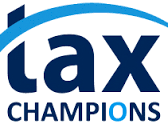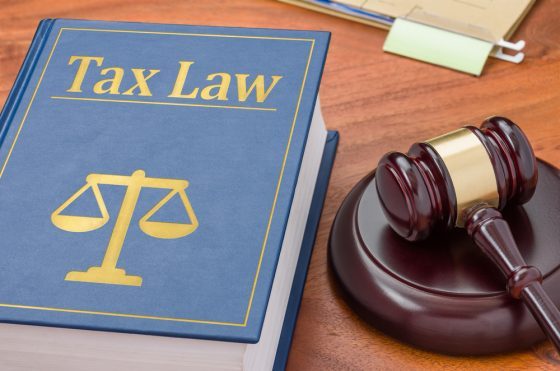Are Tax Attorneys Worth the Splurge?
The IRS expects every taxpayer to file and pay their taxes on time each year. Many taxpayers are comfortable with preparing and filing their own simple tax returns. On the other hand, taxpayers commonly seek expertise for complicated returns to save time and ensure accuracy. Consequently, tax professionals e-filed about 60 percent of individual tax returns on behalf of taxpayers in 2018. Although many tax attorneys offer tax return preparation and other tax-related services, are they worth the splurge?
Choosing the right tax professional will certainly have a meaningful impact on your ongoing financial health. Here, we break down the most important considerations to scrutinize when you’re shopping for the right tax adviser for you.
Are tax attorneys my best option?
The IRS divides tax professionals into two separate categories.
Some professionals have limited representation rights, such as Annual Filing Season Program Participants and Preparer Tax Identification Number (PTIN) Holders. According to U.S. News and World Report, “Only about one-third [of active PTIN holders] have professional credentials.” That means that although some PTIN holders have experience in tax preparation, they haven’t “demonstrated any tax competency to federal or state regulators.”
They’re also “not bound by any ethical or continuing education requirements,” says the U.S. News and World Report. “The tax field is largely unregulated, so choosing a legitimate tax professional is essential.”
Other tax professionals have unlimited representation rights, such as Enrolled Agents, Certified Public Accountants and tax attorneys. These professionals hold credentials regulated by industry watch dogs. We’ll focus on tax professionals with unlimited representation rights for the purposes of this article.
Enrolled Agents
Enrolled agents are licensed and regulated by the IRS. They explain, “Enrolled agents are subject to a suitability check and must pass a three-part Special Enrollment Examination, which is a comprehensive exam that requires them to demonstrate proficiency in federal tax planning, individual and business tax return preparation, and representation.” In addition, they’re required to complete 72 hours of continuing education once every three years.
Tax Attorneys
An aspiring tax attorney undergoes most of their education and training in law school. Law school teaches students legal methods, civil procedure, criminal law, constitutional law and much more. Once law school is complete and the bar exam is passed, attorneys may center their focus on tax law. Consequently, tax attorneys are best suited for taxpayers who need to be represented in a court of law for tax evasion, fraud, or any similar crime.
Certified Public Accountants (CPA)
CPAs are the most educated and regulated of the three occupations that have unlimited representation rights with the IRS. They’re licensed by state boards of accountancy after obtaining an accounting degree and passing the Uniform CPA Examination. They’re required to maintain ethical standards in their practice, as well as meet continuing educational requirements. “As a result,” says the Motley Fool, “those CPAs that choose to specialize in tax tend to have a greater background on certain tax issues than the typical tax professional.”
If I don’t need a tax attorney, how do I choose a tax professional?
First of all, if you’re in trouble with the law and the IRS, hire a tax attorney. Verify their credentials and ask questions about their experience before settling on someone to represent you.
If you’re not in trouble with the law, your needs are certainly more suitable for an Enrolled Agent or CPA. Here are some important tips for selecting a qualified and reliable tax professional.
-
Verify qualifying credentials.
Taxpayers can verify the credentials of a tax professional they’re considering hiring. The easiest way to do this is to use the IRS’s Directory of Federal Tax Return Preparers with Credentials and Select Qualifications. Just type in your zip code and specify which credentials you’re looking for, if you choose.
The IRS notes that tax attorney and CPA credentials are self-reported. Although the IRS verifies credentials when they’re reported, they don’t monitor their status on an ongoing basis. Taxpayers should also refer to the source of the credential (such as the board of accountancy or bar) for its most current status.
-
Confirm that he/she will sign his/her name and include their PTIN on your tax return and other forms that will be submitted to the IRS on your behalf.
The IRS explains that tax professionals must sign returns and note their PTIN. If a tax professional isn’t willing to do so, look for someone else. Any hesitation to take credit for tax work done is a red flag. Scams run rampant in the tax industry; legitimate tax professionals have no problem with submitting this information on work they’ve completed for you.
-
Ask about office hours and holidays.
While many taxpayers find this trivial detail unimportant, it shines a spotlight on the support you have from your tax professional. This is especially important if you’re selected for an audit or have a question about tax planning.
Nerdwallet points out, “Enrolled agents, CPAs and [tax] attorneys with PTINs can represent you in front of the IRS on audits, payments ad collection issues, and appeals.” Above all, qualified tax professionals are available whenever you need them – not only during tax season.
Avoiding Fraudulent Tax Attorneys and other Tax Professionals
Every year, the IRS lists 12 of the most common recent tax scams. They call them the “Dirty Dozen.” With recent tax reform in place, several tax laws have changed. For that reason, many taxpayers are opting to hire a tax professional to prepare their tax returns and handle their tax problems. As a result, fraudulent tax professionals have been on the rise. In fact, the IRS has even included fraudulent tax preparers on its annual list of the Dirty Dozen.
With the amount of sensitive identifying information that a tax professional has access to, it’s imperative for taxpayers to select a qualified and reputable person or company for tax services. “Tax professionals provide an incredibly valuable service to taxpayers and our nation’s tax system,” said IRS Commissioner Chuck Rettig. “We encourage people to carefully choose who they trust with their most sensitive tax and financial information.”
The U.S. Department of Justice and the IRS work together to curb tax scams by assessing penalties to fraudulent tax professionals and in many cases, prosecute them. As an added measure and as the first line of defense for consumers, taxpayers should be diligent in their selection of a tax professional.
IRS Guidelines for Choosing a Tax Attorney or Another Tax Professional
Regardless of who prepares your returns or otherwise represents you in communications with the IRS, you will be held responsible for inaccurate information submitted to the IRS on your behalf. For this reason, the IRS offers the following guidelines for consumers in the market for a tax attorney and other tax relief professionals.
- Look for a tax professional who’s available year-round.
- Make sure he/she has a PTIN.
- Ask about the tax professional’s credentials and qualifications.
- Verify his/her reputation by looking at his/her rating at the Better Business Bureau (BBB).
- Similarly, check reviews and complaints.
- Inquire about how service fees work. Fees should be a flat rate based on the work and time required to resolve your issue. For example, a service fee based on the size of a refund is another red flag.
- Confirm that the tax professional will be e-filing your return. Don’t accept “maybe” for an answer.
- Prepare to provide documentation to prove your claims. Any information submitted to the IRS on your behalf should be verifiable in the unlikely case of an audit.
- Avoid tax professionals who ask you to sign a blank return. In fact, taxpayers should carefully review all information on any IRS forms before signing and submitting them to the IRS.
Why Choose Tax Champions
“Selecting the right tax professional is vitally important,” says the IRS. “Taxpayers are ultimately responsible for the accuracy of their tax return, regardless of who prepares it.” Essentially, the IRS sees your tax representative as an extension of you. They will certainly hold you accountable for benefits that you see as a result of your representative’s actions. Above all, this makes the selection of a tax attorney or other tax representative vitally important.
Tax Champions has more than 35 years of real-world experience preparing tax returns and representing taxpayers in all other transactions with the IRS. As a CPA firm, we have unlimited representative rights with the IRS. We also have extensive experience in accounting and tax relief services for individuals and businesses, alike. Take a look at the A+ rating we maintain at the BBB. You’ll find that we have no complaints with them or the Board of Accountancy.
Our entire staff is available for you all year around. But we take our commitment to availability one step further. We have staff available to take your calls all seven days of the week during standard business and also evening hours. Give us a call at 800.518.8964 for a free case review. If you need a tax attorney, we’ll happily share that with you up front. If we can help you, we’ll discuss the details of your case, as well as your options.
You certainly have nothing to lose, except maybe some anxiety. But you do have clarity and peace of mind to gain. Give us a call today. We look forward to hearing from you.
Sources
[1] Directory of Federal Tax Return Preparers with Credentials and Select Qualifications. (n.d.). Retrieved from //irs.treasury.gov/rpo/rpo.jsf
[2] Filing Season Statistics for Week Ending November 23, 2018. (2019, June 28). Retrieved from //www.irs.gov/newsroom/filing-season-statistics-for-week-ending-november-23-2018
[3] Gaddis, J. (2019, January 17). How To Choose the Right Tax Professional. Retrieved from //money.usnews.com/money/blogs/my-money/articles/how-to-choose-the-right-tax-professional
[4] IRS: Choose tax preparers carefully; Tax return preparer fraud makes IRS’ 2019 “Dirty Dozen” list of tax scams. (2019, June 28). Retrieved from //www.irs.gov/newsroom/irs-choose-tax-preparers-carefully-tax-return-preparer-fraud-makes-irs-2019-dirty-dozen-list-of-tax-scams
[5] Orem, T. (2019, February 14). 7 Tips to Find the Best Tax Preparer Near You. Retrieved from //www.nerdwallet.com/blog/taxes/how-to-find-best-tax-preparer-near/
[6] Staff, M. F. (2016, March 01). What Are the Difference Between Accountants vs. Tax Preparers? Retrieved from //www.fool.com/knowledge-center/accountants-vs-tax-preparers.aspx
[7] Tax Champions: Better Business Bureau® Profile. (n.d.). Retrieved from //www.bbb.org/us/ca/ventura/profile/tax-consultant/taxchampions-1236-92012281
[8] Ten Tips for Choosing a Tax Preparer. (2019, June 28). Retrieved from //www.irs.gov/newsroom/ten-tips-for-choosing-a-tax-preparer
[9] Understanding Tax Return Preparer Credentials and Qualifications. (2019, May 7). Retrieved from //www.irs.gov/tax-professionals/understanding-tax-return-preparer-credentials-and-qualifications

